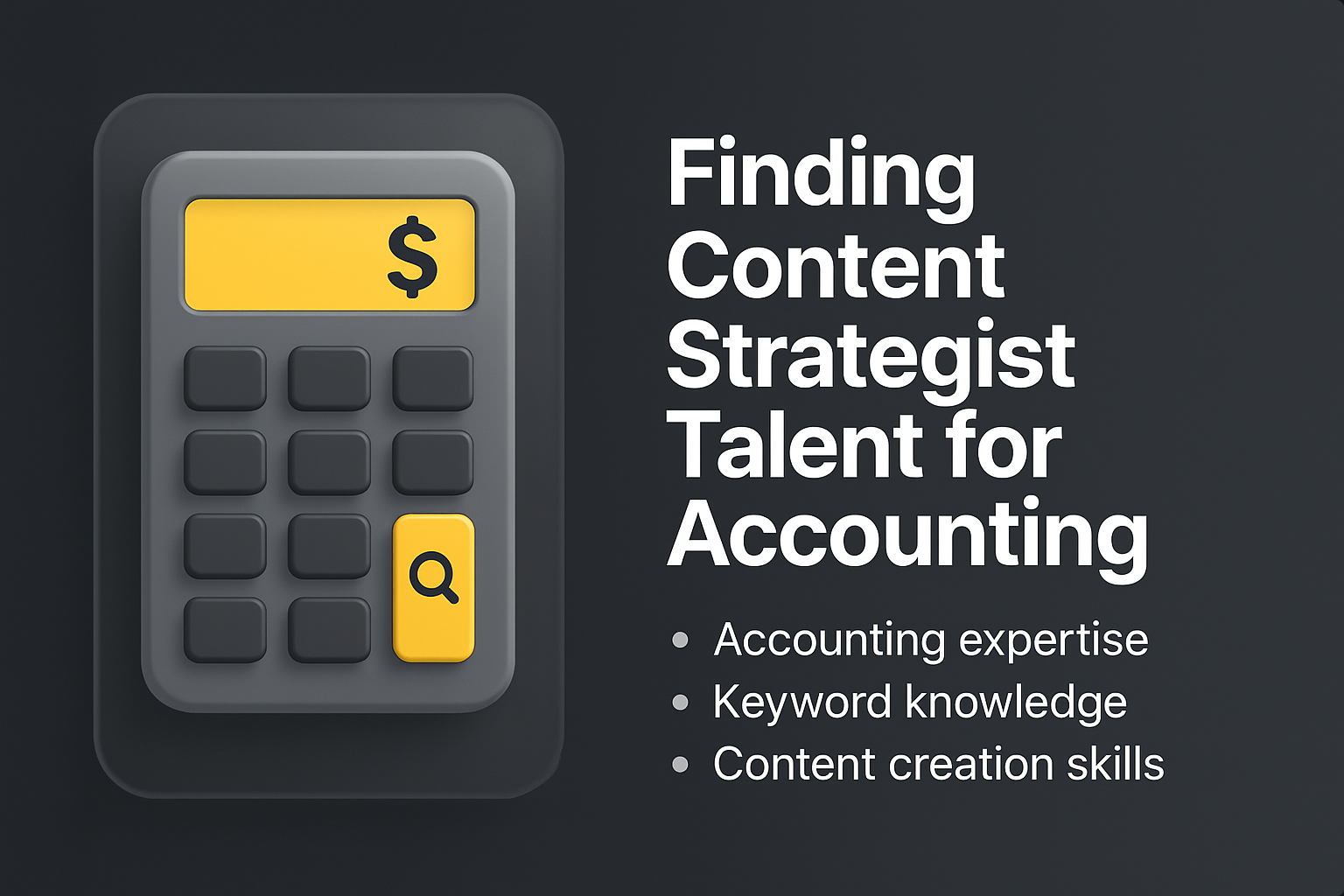Schedule a Demo
Accounting, as a field, is both intricate and indispensable. It's the backbone of financial transparency and compliance for businesses across the spectrum. From small startups to multinational corporations, the need for accurate accounting is universal. Yet, within this broad field, there are specific niches and keywords that can significantly enhance a content strategist's ability to attract the right talent to their organization.
When aiming to attract content strategists to the accounting sector, it's crucial to understand the keywords that resonate within this industry. Terms like 'financial reporting', 'tax compliance', and 'audit management' are not just buzzwords; they are critical components of accounting that potential candidates will be searching for.
Financial reporting stands as a cornerstone of accounting. It involves the preparation of financial statements that provide a clear picture of a company's financial health. For content strategists, understanding and incorporating this keyword can signal to potential hires that their role will involve crafting narratives around financial performance, which is essential for investor relations and strategic decision-making.
Tax compliance is another critical keyword in the accounting world. It encompasses the adherence to tax laws and regulations, which can be complex and vary by jurisdiction. Content strategists who can weave this keyword into their job descriptions or content pieces will attract candidates who are adept at simplifying these complexities for their audience, a valuable skill in the accounting sector.
Audit management is a keyword that speaks to the oversight and execution of financial audits. It's a process that ensures the integrity of financial statements. By focusing on this keyword, content strategists can draw in talent that understands the importance of audits in maintaining trust and credibility in financial reporting.
Integrating these keywords into a content strategy involves more than just sprinkling them into job postings or blog articles. It's about crafting a narrative that reflects the organization's commitment to these aspects of accounting. For example, a content piece might explore how 'financial reporting' can be transformed into a storytelling tool that engages stakeholders.
SEO plays a pivotal role in attracting talent through keywords. By optimizing content with keywords like 'financial reporting', 'tax compliance', and 'audit management', content strategists can increase their visibility in search engine results, making it easier for potential candidates to find them. This optimization should be done thoughtfully, ensuring that the keywords enhance rather than detract from the content's readability and value.
Attracting the right talent in the accounting field is about more than just listing job requirements. It's about creating a content ecosystem that speaks to the aspirations and skills of potential content strategists. By using keywords strategically, organizations can signal their focus areas and attract candidates who are passionate about those aspects of accounting.
Content plays a crucial role in talent acquisition. It's the medium through which organizations can communicate their culture, values, and the specific skills they're looking for in a content strategist. By leveraging keywords effectively, content can become a magnet for talent, drawing in individuals who are not only skilled but also aligned with the organization's mission.
In my work with various businesses, I've seen how case studies and examples can bring keywords to life. For instance, a case study on how a company improved its 'tax compliance' through innovative content strategies can serve as a powerful tool to attract talent who are eager to make a similar impact.
While keywords are essential, they must be balanced with authenticity. Content that feels forced or overly optimized can deter potential candidates. Instead, content strategists should aim to integrate keywords naturally, ensuring that the content remains engaging and informative.
Looking ahead, the intersection of accounting and content strategy is likely to evolve with new technologies and methodologies. Keywords like 'AI in accounting' or 'blockchain for financial transparency' may become increasingly relevant. Content strategists who stay ahead of these trends can position their organizations as forward-thinking employers, attracting talent who are excited about the future of accounting.
Finally, measuring the success of a keyword-focused content strategy is crucial. This can be done through metrics like website traffic, engagement rates, and the quality of applicants. By analyzing these metrics, content strategists can refine their approach, ensuring that their use of keywords continues to attract the right talent.
